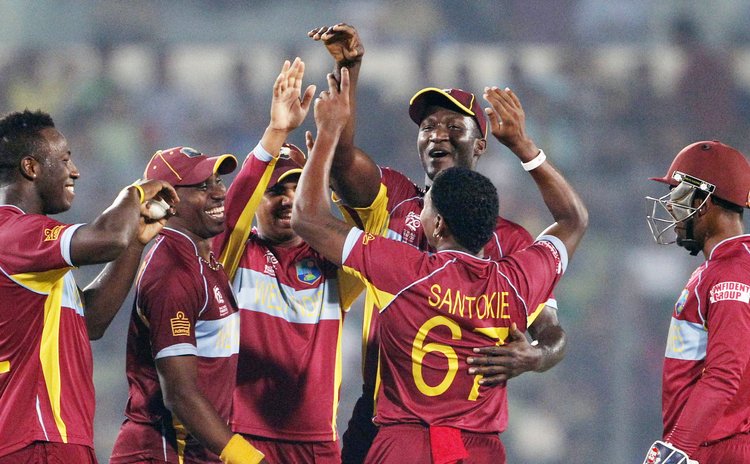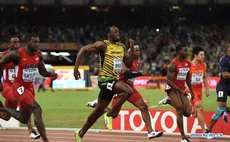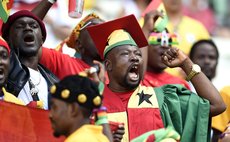Abuse of the drawing board

Like most everyone, I was inclined to suggest that West Indies may have just about turned the corner as to its fortunes when selection came about for the recent O.D.I series against England. A flurry of centuries in the lead-up Regional Super 50 Tournament encouraged all to feel that all was at long last beginning to reveal some light at the end of the dark tunnel that has been in existence for so very long. If the dark was that of a dungeon, certainly the batting exploits of Keiron Powell, Mohammed, Hope and some others looked like the key to break out of jail. At least the formula for run scoring seemed to be regained – with possibility of rubbing shoulders with comfort against whatever England might have put forward on the scoreboard. Alas, we lost all three matches – plague like and the disease escalating in severity.
My preview aired on DBS Radio preempted my complete presentation, more significantly my reservations, firstly, as to the nature of the pitches that were to be prepared for the series, and then, importantly, the extent to which the England bowling might differ markedly from that seen on the Regional Super 50 menu. I was somewhat inclined towards concern, as expressed by Sir Anderson Roberts, that the profusion of centuries was stimulated by highly agreeable bowling against which it was difficult not to score.
In the first ODI, England scored 296 for 6 wickets, and the West Indies reply of 251 all out in 47 overs and 2 balls was made palatable only through a scraping of the barrel after the score stood on 201 for 5 at the 40 over mark. The defeat by 45 runs carried mitigation in that England's captain Eoin Morgan was dropped at 6 when Shei Hope dived with unpardonable intrusion to botch a catch aimed very comfortably at Powell. Morgan's reprieve brought him 107 and began the long lament for West Indies. All this occurred after the toss had been won by West Indies.
No question of a reprieve presented itself for Jason Holder and his men two days later when batting first – sent in by England – they could only eke out 225 in 47 overs and 5 balls. England, without needing to appear dominant, polished off the required runs, 226 for six wickets and snatching the series with their unassailable 2-nil lead.
The less said about the third and final ODI the better. We lost miserably by nearly 200 runs! In no way can we take heart from this. It only emphasized the value of Sir Andy's cautionary stance prior to the series. He had declared unapologetically that the West Indies Regional series was symptomatic of dogs barking in their own backyard against toothless curs! The words, of course, are my own. Sir Andy is much too polite for that.
Now, we come down to earth with a resonant thud – and our drawingboard collapses for whoever wants to pick it up! Chastened by all that has happened, we might do well to start very much at the beginning. What's that, do you say? If Test cricket be the food of the game, let it play on! Much else is distraction and little more than dissipation of the true spirit of cricket.
Please don't accuse me of jumping ship because of an ODI storm. I feel strongly the best medication for the West Indies ailment should be in applications of Test cricket dosages. But initially then, must be remedial courses in our first class cricket – the four day game. That is not to say that the poverty of our cricketers will instantly diminish by introducing an overburden of four day cricket. We have to examine the contingent problems and act appropriately.
At the risk of attracting ridicule, I insist it is easier to develop a good one day side if you have a good Test team, than vice versa. Without being paradoxical, our cigar is lit at both ends and all we are getting is ash! We are threatened to be beaten by Zimbabwe and Bangladesh in Test matches, and we are unable to qualify for inclusion in ODI tournaments on merit!
Call it irrational – but not an indulgence in escapism on my part. I want to cite the 1963 tour of England won by Sir Frank Worrell and his lads. The West Indies batting was carried by Sir Conrad Hunte with 471 runs in the series, Rohan Kanhai 497, Basil Butcher, 383, Sir Gary Sobers, 322, Sir Frank Worrell, 142, Joe Solomon, 204. The bowling featured Sir Wes Hall, 16 wickets, Charley Griffith, 32, Lance Gibbs, 26, and Sobers, 20, The series was won 3-1 by West Indies with one match drawn.
The series made a big hit with West Indians both in the Caribbean and in England. It was sensational and indeed, carried on the momentum of Worrell's legacy emanating from the tied Test match at the commencement of the Australia – West Indies series in 1960-61 Down Under. If I am not mistaken, few persons will remember that West Indies in 1963 faired little well in whatever ODI matches were engaged in against England. Limited overs cricket demands a special set of dispositions – not necessarily that of superior skills.
What predisposed the Worrell side of 1963 towards success – under English conditions? There were six batsmen in Hunte, Kanhai, Butcher, Sobers, Worrell and Solomon. Each was a highly skilled specialist in the art of batsmanship. Then there were four superlative bowlers: the pace of Hall and Griffith with Sobers highly capable with both the new and the old ball. Along with them was the spin of Lance Gibbs whose control and cunning was exceptional. It was my privilege to see all ten of these men in action. All of them played in Dominica in one way or another, except Solomon and Worrell, the latter only after retiring from the game. We have seen none of the current West Indies players threatening to assume similarity with the past masters. A rating of about sixty percent in comparison with them would render our young pretenders into the real and required article. Let's set up the drawing board in this direction.




